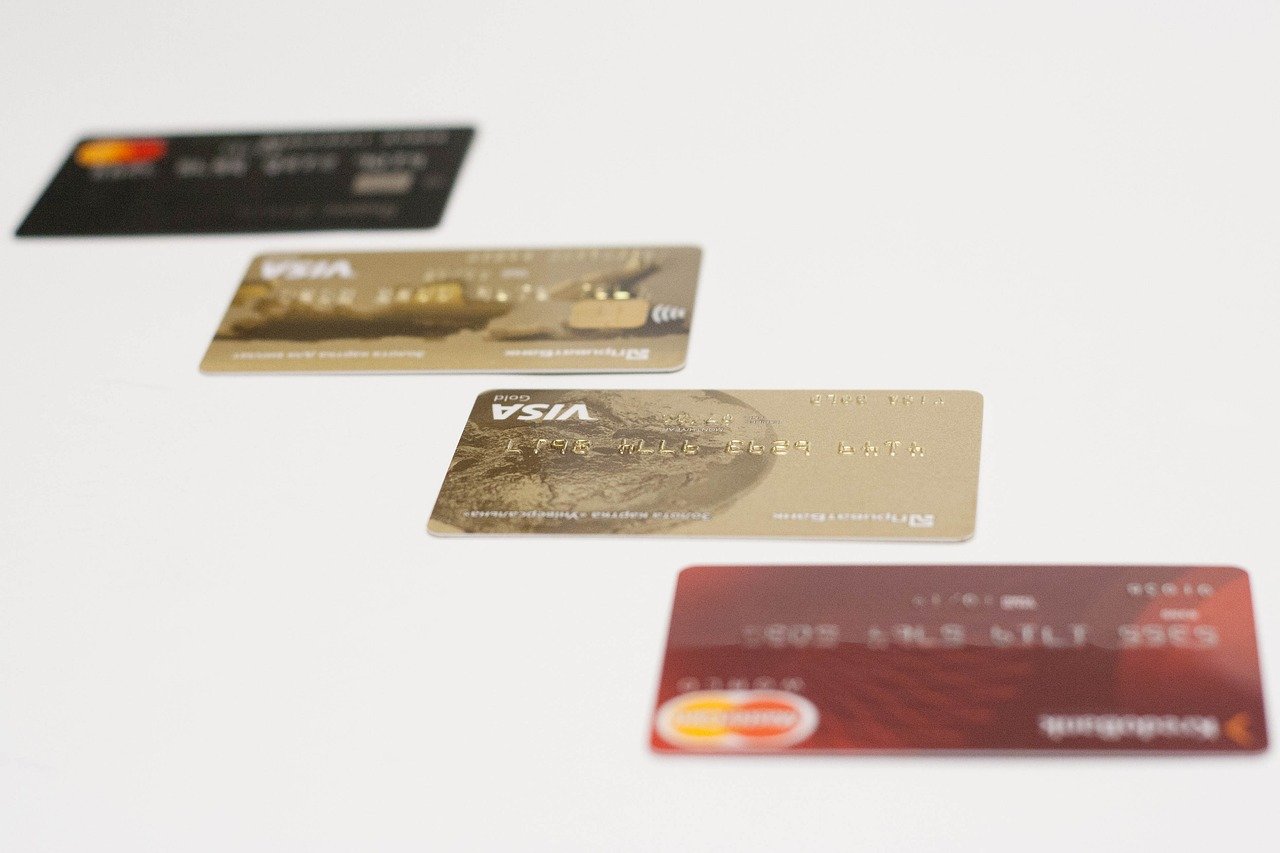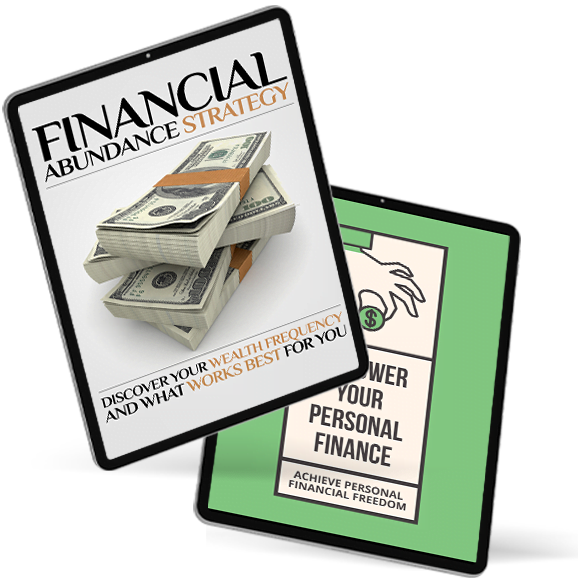Household Debt Climbs to $17.69 Trillion in First Quarter; Delinquency Rates Rise Again
Mortgage balances shown on consumer credit reports increased by $190 billion during the first quarter of 2024
Credit card utilization rates rose to 30% in 2023, while average APR for interest-bearing accounts climbed to 22.75% as of the first quarter of 2024.
As U.S. household debt climbs to $17.69 trillion in Q1 2024, with mortgage balances up by $190 billion and credit card utilization rates at 30%, it’s time to scrutinize the true cost of credit card dependency. The average APR for interest-bearing accounts has hit 22.75%, signaling a critical juncture to explore life beyond credit cards.

Debunking the Credit Card Necessity Myth
Amid discussions on the tangible risks of credit card debt, it’s also vital to tackle the widespread propaganda. This propaganda, pushed by credit card companies and sometimes inadvertently by consumer culture, insists that one needs a credit card to be financially capable.
The Necessity Myth Propagated
Credit card companies invest heavily in marketing strategies designed to embed the idea that a credit card is not just a financial tool, but a necessary component of a responsible adult’s financial portfolio. Through advertisements showcasing the ease of use, the security benefits, and especially the rewards and points systems, these companies paint a picture of credit cards being indispensable. Moreover, the notion that one “needs” a credit card to build credit score further fuels this narrative.
The Reality Behind Credit Building
Although credit cards can boost credit when managed well, they’re not the sole option. Alternatives like secured cards, credit-builder loans, or being an authorized user on another’s account provide credit-building routes without the risks of unsecured cards.
Societal Pressure and Consumerism
Propaganda extends beyond ads and advice into societal norms. There’s pressure to own a credit card, wrongly linked to financial stability or success, ignoring debt risks. This societal drive promotes consumerism and neglects the benefits of living within one’s means.
The Appeal to Convenience and Status
Credit card companies leverage the appeal of convenience and status. The ease of booking hotels, renting cars, or online shopping often justifies card necessity. Premium cards, with perks like lounge access and concierge services, are marketed not only for convenience but as status symbols, suggesting card type signifies success.

Critical Examination and Conscious Decisions
Unpacking credit card propaganda demands a critical look at the messages. It prompts questioning whether financial choices stem from societal norms, marketing, or actual well-being. Understanding cards as tools, not necessities, fosters smarter finance management.
To counter these narratives, one should explore alternative finance, credit, and spending strategies. With a full grasp of options, people can make choices that fit their financial aims, not just market pressures.
The widespread belief in the necessity of credit cards blends marketing with social norms. Yet, by scrutinizing these claims and debt’s implications, we can challenge this view. Opting for alternatives and informed credit decisions can pave the way for a debt-free, pressure-less financial life. Rejecting the propaganda isn’t about shunning credit but about using it wisely in line with personal financial objectives.
The Dangers of Credit Card Debt
Recent data paints a worrying picture of credit card use and debt in the U.S. The Federal Reserve reports that revolving credit debt, mainly credit cards, surpassed $1 trillion in 2022, highlighting widespread credit issues among Americans.
Despite ups and downs, credit card debt keeps rising, pointing to a deep-rooted problem in revolving credit. New credit card offers average an interest rate of about 17%, but it can climb higher, hitting those with monthly balances hard with hefty interest fees. The typical U.S. cardholder has thousands in debt, amassing significant interest each year.
See an Experian Study: Average U.S. Consumer Debt and Statistics
The Debt Spiral
The biggest danger of credit cards is the risk of a debt spiral. With many Americans shouldering thousands in debt, easy spending turns into a curse. Credit card interest rates are sky-high, far outstripping other debts, causing unpaid balances to balloon. Paying just the minimum each month can trap people in debt, extending interest payments far beyond expectations.
See The Motley Fool report on American Credit Card Debt in 2024
The Interest Rate Quagmire
The biggest danger of credit cards is the risk of a debt spiral. With many Americans shouldering thousands in debt, easy spending turns into a curse. Credit card interest rates are sky-high, far outstripping other debts, causing unpaid balances to balloon. Paying just the minimum each month can trap people in debt, extending interest payments far beyond expectations.
The Impact on Credit Score
Although using credit cards wisely can boost your score, the opposite is just as impactful. Missed payments, high utilization, or frequent card applications can harm your credit. A diminished credit score might hinder securing good loan or mortgage rates, affecting finances long-term, not just the joy of current purchases.
Psychological Spending Traps
While smart credit card use can improve your score, the downside hits just as hard. Late payments, high usage, or too many applications can damage your credit. A lower score can make it tough to get favorable loan or mortgage rates, impacting your financial health beyond the thrill of buying now.
The False Security of Rewards
Smart credit card management can enhance your score, but the negatives are equally potent. Late payments, excessive use, or frequent applications can hurt your credit. A reduced score might complicate securing good rates on loans or mortgages, affecting your finances well beyond the immediate satisfaction of purchases.

The Benefits of Responsible Credit Card Use: The Counter Argument
Though the article critiques credit card use, it’s crucial to recognize scenarios where responsible usage can be advantageous. Wisely managed, credit cards help build credit history, vital for loans, mortgages, or rentals. Regular, on-time payments and low utilization can boost scores. Moreover, strategic use can leverage benefits like cashback, travel points, or protection, providing value without debt if balances are cleared monthly. Responsible use demands discipline, understanding terms, and planned spending. For those who follow these rules, credit cards become a means of financial empowerment, not a debt trap.
Building Credit History
A key benefit of credit cards is their role in establishing a robust credit history. Lenders gauge your borrowing reliability based on this history. Consistently using a card and making payments on time can greatly enhance or build your credit score, which is crucial for future loan, mortgage, or rental applications.
Earning Rewards and Cash Back
Many credit cards offer rewards programs that allow you to earn points on purchases that can be redeemed for travel, merchandise, or even cashback. These rewards can be highly beneficial, effectively saving you money on expenses you were already going to incur. When used purposefully, these rewards can add significant value without leading to unnecessary spending.
Consumer Protections
Credit cards often come with a suite of consumer protections not available through debit card or cash purchases. These can include fraud protection, product warranties, travel insurance, and chargeback rights, which can save and protect money in the long term.
Navigating Online Purchases and Rentals
Credit cards streamline online shopping and travel, making booking hotels, car rentals, or e-commerce easier. They’re often required for transactions for security and verification. Plus, the extra fraud protection makes them ideal for online buying.
Alternatives to the Credit Card Lifestyle
Given the myriad pitfalls associated with credit card use, it’s worth considering alternatives that can offer financial flexibility without the accompanying risks:
Debit Cards: For those who appreciate the convenience of card payments, debit cards offer a similar experience without the temptation to spend beyond one’s means.
Cash: Using cash can help increase mindfulness about spending, as the physical act of handing over money can curb impulsive purchases.
Emergency Fund: Building and maintaining an emergency fund can negate the need to rely on credit cards for unexpected expenses, thus avoiding high-interest debt.
Secured Credit Cards: For those looking to build or repair credit, secured credit cards offer a way to do so while requiring a cash deposit that typically acts as the credit limit, thereby limiting the risk of accruing unmanageable debt.
While credit cards can offer convenience, rewards, and the opportunity to build credit, the risks they pose cannot be overstated.
The temptations of immediate access to funds, combined with high-interest rates and the potential for a negative impact on one’s credit score, present a compelling case against their use. Opting for alternatives that encourage responsible spending and saving can lead to a more secure financial future free from the burdens of credit card debt.
It’s about re-evaluating our relationship with money, understanding the true cost of credit, and making mindful choices that support our long-term financial well-being.
See Consumer Credit Case Studies here.
Disclaimer: The information provided here is for educational purposes only. It does not constitute investment advice or a guarantee of performance. Investing involves risks, including the possible loss of capital. Seek advice from financial and tax professionals tailored to your financial circumstances and goals.
Guard your Savings against Inflation here



















